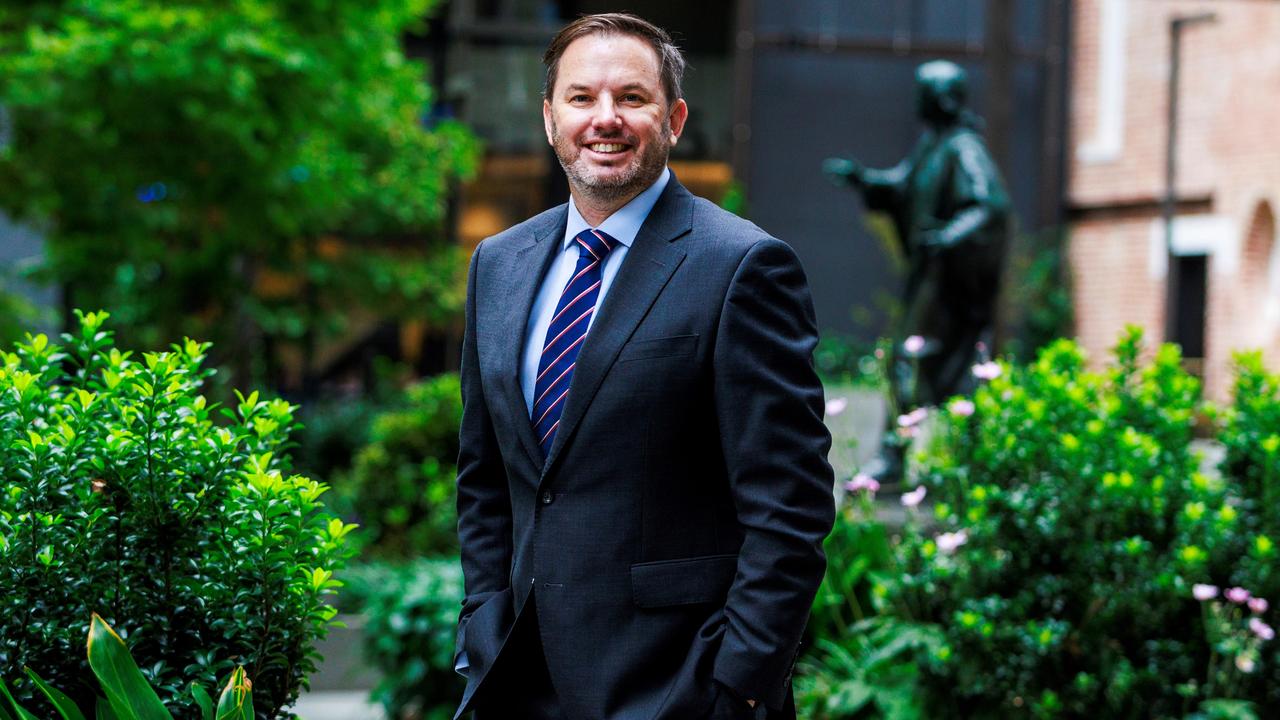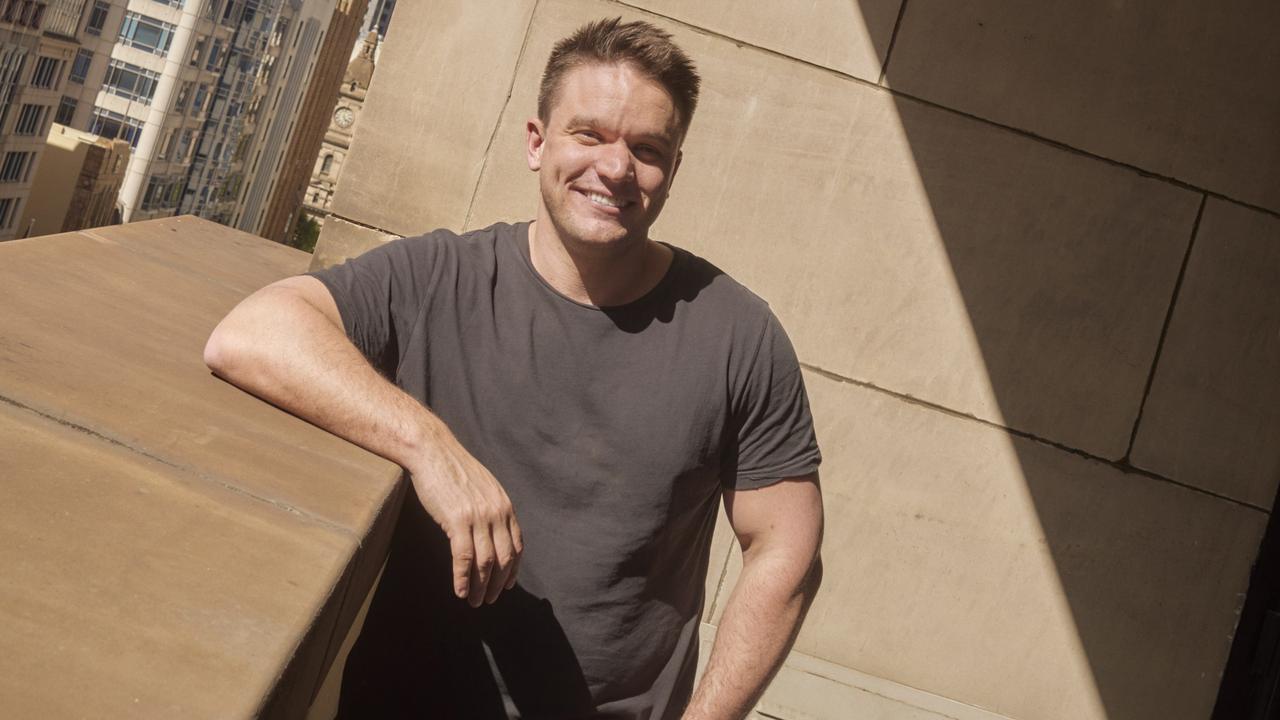‘Growth will follow if borders stay open’ says Commonwealth Bank’s Matt Comyn
With vaccines and more open borders, the pool of savings built up during COVID will put a big tailwind behind the recovery, says the CEO of the country’s biggest bank.

Business leaders have called for a path towards more open borders as the vaccine rollout picks up pace with Commonwealth Bank chief executive Matt Comyn flagging a bullish outlook for an economic recovery.
The bank leader said there was “extremely positive” data coming out of all parts of the economy and that if the vaccine rollout continued to mitigate risks around the pandemic, “we‘re going into a very positive set of economic circumstances”.
Mr Comyn said the coronavirus had impacted businesses and people very unevenly but said it was a “much smaller” group of people requiring the kind of support that had been expected.
The bank would support some struggling sectors of the economy, including tourism where he said on a ten year view, the industry would become an important sector in the broader services economy, alongside education.
“Fundamentally, we‘re just in a much better position than where we thought we’d that we could be,” he said. “Overall we’re very, very positive on particularly [a] consumer led recovery during the course of this year.”
The Commonwealth Bank chief told a Sydney business conference that a very substantial domestic savings pool had been built up over the last 12 months, partly on the back of income stimulus measures worth about $160bn and high saving rates.
“That‘s quite a big tailwind that’s going to provide, I think, fundamental support and stimulus over the coming years,” he said.
Mr Comyn argued there were “logical consequences” of a low interest rate environment globally and a yield curve that was being restrained, so financing costs could be kept lower, including pressure on rates paid on deposits.
“The reality is that puts a lot of pressure on deposit rates and on savings rates and we see that very acutely,” he said.
“Are there an increasing proportion of funds that are chasing riskier assets – that’s probably right. I think people quite rightly ask the question around asset bubbles,” he said.
But the bank chief pointed to longer term influences at work and the potential impact on retirement outcomes.
“The other pressure that we feel sharply, I know the Reserve Bank does as well, is the rate of savings that’s available in Australia, [and] in financial institutions all around the world, is very low,” he said.
Mr Comyn said this puts “a lot of pressure on people, particularly at a later stage in their life and it may not be as appropriate for them to fundamentally change their asset allocation”.
He also identified the importance of business capital investment. “We’ve been growing the number of business bankers, we’ve expanded our geographical and our sector coverage,” he said.
The bank chief expects incentives to continue as the economy recovers, particularly around incremental business investment, and feels pressure to pass on rate cuts broadly, including to smaller businesses.
“We feel that pressure to make sure that we’re providing access to credit at very affordable prices which is … part of the overall design of the Reserve Bank’s term funding facility,” he said.
The Sydney conference also received an upbeat assessment from Qantas CEO Alan Joyce, who is advocating a three point plan for opening state borders and introducing more uniform systems across Australia.
He dubbed the multiple state systems for coronavirus alerts as “ridiculous” and said there needed to be a universal system to avoid confusing the travelling public. States could each employ the system differently but he said a single system would cause less confusion.
Mr Joyce said Avalon cluster on Sydney’s northern beaches had shaken confidence and he called on states to guarantee that residents would have 48 hours to return in the event of lockdowns.
He is also calling for state governments to unite by mid-year and say they will not close their borders once vaccines have been substantially rolled out.
Qantas is already upping capacity as Australians switch from offshore travel with Mr Joyce predicting that people would travel domestically. “Now we‘re seeing this huge pent up demand,” he said, estimating holiday demand is back at 90 per cent.
The airline chief is calling for changes as a way of helping the tourism industry and areas of the economy could suffer once JobKeeper finishes at month end.
“We have to get the Australian population to move away from zero cases to say at some stage we have to open up. We need to be part of a world economy again,” he said,
Mr Joyce warned that if Australian took to long there would be “huge implications” for tourism, education and associated industries. “We‘ll be left behind; the Europeans, the Americans will all be open,” he said.
NSW Premier Gladys Berejiklian said once vaccinations had been rolled out further then risks to the community would be “massively diminished”. ”There is no reason why internal borders should even be an issue,” she said.
“I think it‘s an embarrassment … particularly embarrassing within Australia, we’ve got great international borders at the moment which are keeping the community safe. There is no excuse whatsoever for internal borders.”




To join the conversation, please log in. Don't have an account? Register
Join the conversation, you are commenting as Logout